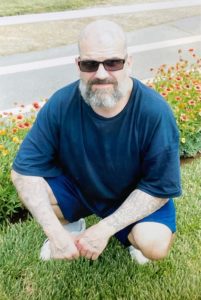 In July 2020, Aaron Eaton, who was sexually abused as a young Boy Scout, had the opportunity to become a plaintiff in a class-action lawsuit against the Boy Scouts of America on behalf of thousands of survivors of abuse. But when legal mail that Mr. Eaton needed to secure his spot as a plaintiff arrived at the prison where Mr. Eaton is incarcerated, an officer confiscated it.
In July 2020, Aaron Eaton, who was sexually abused as a young Boy Scout, had the opportunity to become a plaintiff in a class-action lawsuit against the Boy Scouts of America on behalf of thousands of survivors of abuse. But when legal mail that Mr. Eaton needed to secure his spot as a plaintiff arrived at the prison where Mr. Eaton is incarcerated, an officer confiscated it.
Prison officials returned the mail a couple of weeks later, explaining that it had been a mistake to confiscate it in the first place. That was, however, cold comfort for Mr. Eaton, who had by that point lost his chance to join the lawsuit and thus his one opportunity to receive redress for the abuse he endured as a child. Last fall, a multi-million-dollar settlement was pre-approved in that lawsuit, with claim values anywhere from a couple thousand dollars to a couple million dollars per survivor.
Under the Prison Litigation Reform Act (PLRA), a prisoner must “exhaust” administrative remedies before filing a lawsuit by perfectly following a prison’s grievance rules. But when Mr. Eaton tried to use the prison’s grievance system to complain about the unconstitutional confiscation of his mail and the extraordinary harm it caused him, prison officials denied his grievance outright not because it lacked merit but because of a rule allowing prisoners to have only four pending grievances at any one time.
The district court erroneously agreed with prison officials, saying that if Mr. Eaton had really wanted to file a timely grievance about his mail, he could have withdrawn one of his other pending grievances.
The Roderick & Solange MacArthur Justice Center (MJC) represented Mr. Eaton on appeal in the Ninth Circuit, arguing that under both the plain text of the PLRA and the U.S. Supreme Court’s decision in Ross v. Blake, a prisoner satisfies the exhaustion requirement where administrative remedies are not capable of use, or act as a simple dead end.
In support of MJC’s position, a coalition of organizations dedicated to the rights of incarcerated individuals, led by the ACLU, filed an amicus brief stressing the considerable barriers to exhaustion, the ability of prison officials to manipulate exhaustion systems, and the way in which an overreading of exhaustion blocks prisoners from accessing courts.
The Ninth Circuit reversed the district court’s decision and remanded for further proceedings. On the facts that the parties had presented, the Court determined that the grievance policy “presented Mr. Eaton with a real world ‘Catch 22,’ a dilemma from which there is no escape,” such that Defendants were not entitled to invoke exhaustion as a defense to Mr. Eaton’s lawsuit.
Key Documents
Related Cases
For media inquires please contact:
(NOTE: This mailbox is for media inquiries only. All other inquiries, including legal and representation questions, should be submitted through our Contact Form.)
